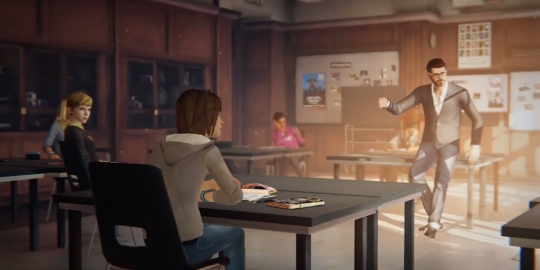
Deck Nine, recognized for its work on the Life is Strange series, is currently embroiled in controversy due to serious accusations from over a dozen past and present employees. These accusations, detailed comprehensively by IGN, suggest a troubling work environment plagued by sexism, mismanagement, excessive work demands, and unprofessional behavior that reportedly went unchecked by the studio's leadership.
One of the more concerning claims involves employees being pushed to work up to 80 hours a week for a month during the crunch period for True Colors. The demands were in part due to deadlines from Square Enix, which were labeled as "impossible". Square Enix reportedly declined to comment on these accusations, merely pointing to Deck Nine’s statement in response.
Allegations extended to various instances of toxic behavior that were allegedly ignored for long periods. This included claims of sexism, transphobia, and sexual harassment. One specific allegation detailed a senior programmer who was known to yell at junior employees, was merely moved to a different part of the office instead of being disciplined, and was only dismissed after a confrontational incident with a human resources member.
The narrative team at Deck Nine reportedly faced particular challenges, with Zak Garriss, the narrative director and later studio chief creative officer, being a focal point of criticism. Garriss was accused of attempting to form inappropriate relationships with female staff, diminishing the Black Lives Matter movement, and insisting writers disclose their political views. Additionally, Garriss was said to have introduced contentious elements into the True Colors’ script, which included an insensitive portrayal of migrant workers and a scene implying date rape, which he allegedly resisted modifying.
Despite numerous reports to human resources and anonymous feedback through the studio’s evaluation system, no action was supposedly taken against Garriss until he left the studio voluntarily. Even when there was consideration to rehire Garriss as a consultant, it reportedly took threats of resignation from multiple writers and legal warnings from HR for management to decide against it.
Garriss defended himself against these allegations, denying any wrongdoing and suggesting the issues stemmed from a lack of creativity and flexibility within the narrative team, not from his management.
Further allegations hinted at instances of hate speech being subtly integrated into Deck Nine’s future game, raising concerns about the studio's content monitoring and oversight.
In response to these allegations, Deck Nine released a comprehensive statement, asserting their commitment to improving workplace practices to avoid overworking, the implementation of formal anti-hate speech training, enhanced vetting processes, and a commitment to thorough investigations of any reported issues, all under the guidance of their strict conduct policies.
The claims against Deck Nine paint a picture of a creative workplace struggling with serious internal issues, highlighting the importance of accountability and the need for studios to create supportive and respectful environments for all employees.